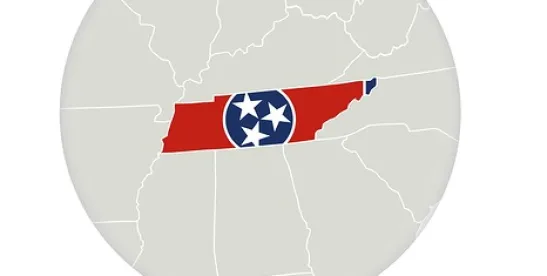Really interesting one out of Tennessee today.
As we have been reporting Realogy looks to be in a pile of TCPA trouble arising out of calls by its agents that allegedly violate the statute.
But traditionally brokerages aren’t liable for the actions of their agents, which is what makes companies like Realogy so susceptible to TCPA risk: the courts in these cases seem to be applying different rules that do not generally apply in the context of a franchisor/franchisee model.
Then again, just because a company uses the same name as a brokerage doesn’t mean the brokerage can be sued for their conduct as Reeves vs. 1st Class Real Estate, LLC, 1:22-cv-01097-STA-jay, 2022 WL 3652953 (W.D. Tenn. Aug. 24, 2022) demonstrates.
In Reeves the Defendant real estate company moved to dismiss the suit arguing it could not be fairly sued in Tennessee because it had no contacts with the state. This is true although a real estate agency in the state was apparently using the name “1st Class Advisors” and used copyrighted materials on their website.
As the Court explained matters:
Of note, 1st Class provides agents the opportunity to start a franchise and receive “the tools to generate your own leads.” (Compl. ECF No. 1 at 4.) As part of the tools promised to franchisees and partners, 1st Class supplies business management services such as telemarketing software and cold-call training. (Id.) According to Plaintiff’s Complaint, 1st Class charges a fee for each transaction made by a partner agent and a fixed monthly fee for their products and services. (Id.) In addition, Plaintiff provides some evidence showing that 1st Class conducts telemarketing itself and hires employees to call consumers directly. (Id. at 7.) The job listings cited by Plaintiff are for positions in Virginia and Florida. (Id. at 7–10.) Plaintiff does not cite to any job listings in the forum state of Tennessee.
So the Defendant trained agents on cold calling and provided marketing software, provided leads and received a cut of any subsequent sale… that looks a lot like what other real estate brokerages have been hung up on recently.
But the Reeves court refused to haul 1st Class into court in Tennessee. It submitted declarations that it did not do business in the state, and despite Plaintiff’s allegations to the contrary the Court refused to credit Plaintiff’s thin evidence that a company called “1st Class Advisors” had anything to do with 1st Class:
But there is only one exhibit attached to the Response, and this exhibit appears to be a photocopied print-off from the website of 1st Class Advisors. (See id. Ex. 1.) The photocopy contains a “contact info” section with a Virginia Beach address and the bottom of the page indicates that the copyright is held by “1st Class Real Estate.” (Id.) Other than Exhibit 1, there is no direct evidence to show that 1st Class Advisors is connected with 1st Class. And the print-off provided by Plaintiff is simply insufficient. Plaintiff must provide more than a Virginia address and evidence of a copyright owned by a business with a name similar to 1st Class. At this juncture, it seems that Plaintiff has only established that 1st Class Advisors does business under nearly the same moniker as 1st Class.
Get it?
Plaintiff relied solely on the 1st Class Advisors website, which did not directly link 1st Class Advisors to 1st Class Real Estate, except by virtue of a single copyright demarcation. While that might give rise to an inference that 1st Class Real Estate was franchising the mark, the Court credited 1st Class Real Estate’s declaration to the contrary:
1st Class provides an affidavit by its founder Rhyan J. Finch. (Ex. 4, ECF No. 8-6.) The affidavit recites that 1st Class “does not conduct any business in Tennessee” and that “1st Class Real Estate LLC is not affiliated with [1st Class Advisors], and Caleb Houston is not an employee of 1st Class Real Estate LLC.” (Id.) This affidavit lends weight to 1st Class’s claims and stands in contrast to Plaintiff’s very limited showing. In essence, the affidavit is substantial whereas Plaintiff’s photocopy contains almost no persuasive information. Consequently, Plaintiff has failed to demonstrate that 1st Class purposely availed itself of the privilege of doing business in Tennessee.
Reeves is an interesting little case factually, but it doesn’t move the needle much on the recent barrage of TCPA cases against real estate brokerages. 1st Class was properly removed from the case because Plaintiff lacked evidence of its connection with the other 1st Class that allegedly made the calls. But, notably, nothing in Reeves suggests that 1st Class would have earned a dismissal if Advisors really was a franchisor.
Happy Friday TCPAWorld.




 />i
/>i

